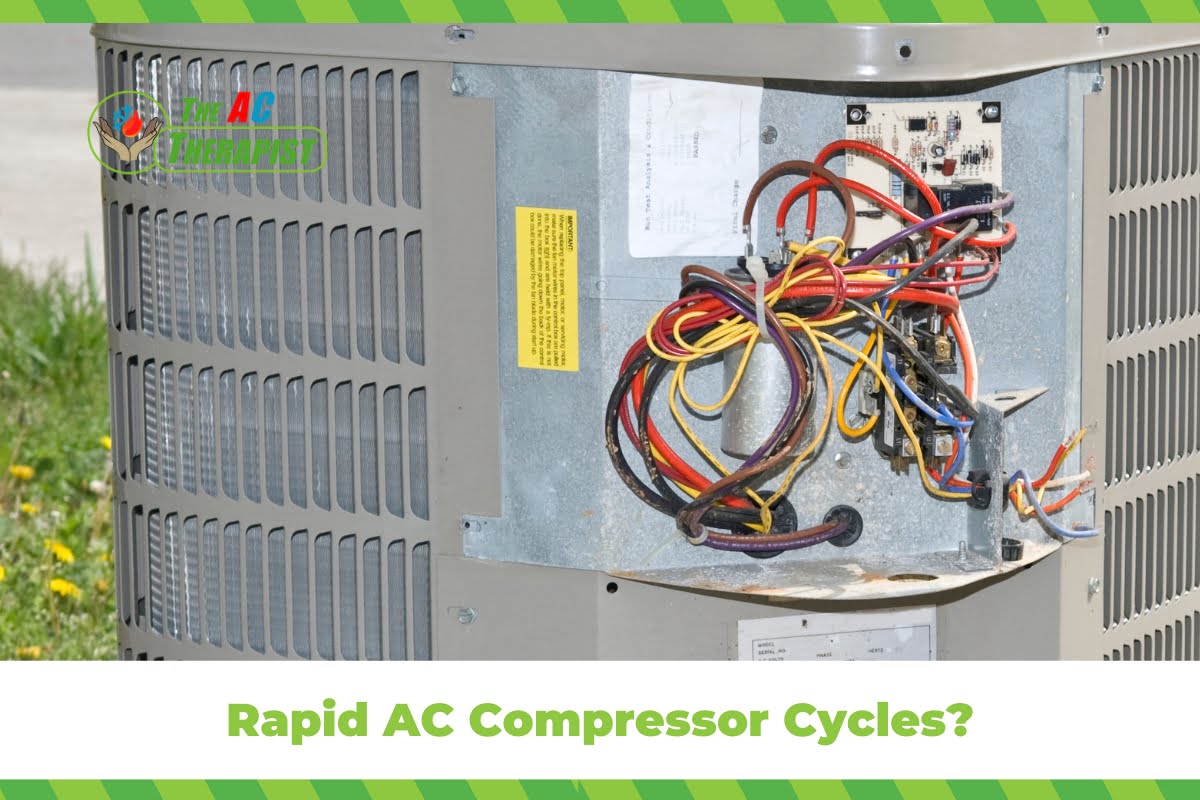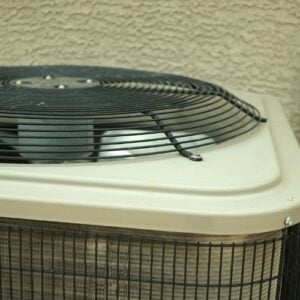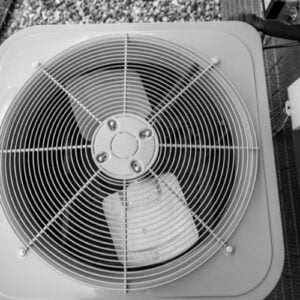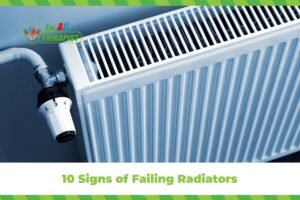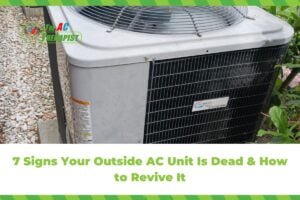Rapid AC Compressor Cycles?
Imagine settling into your cozy living room on a warm summer day, expecting a steady flow of cool air from your air conditioning (AC) unit, only to be met with an unsettling symphony of starts and stops every few seconds. This rapid cycling of your AC compressor is not only annoying but signals deeper issues within your HVAC system that demand immediate attention. Far from being a minor inconvenience, a compressor that cycles on and off in such short intervals can lead to significant problems, from increased energy consumption and higher utility bills to reduced comfort levels and the premature failure of your AC unit.
This peculiar behavior, known as short cycling, disrupts the normal operation of your air conditioning system, preventing it from efficiently cooling your home. Under normal circumstances, an AC compressor cycles on and off to maintain a desired temperature within your home, a process that should occur seamlessly and without frequent interruptions. However, when the compressor begins cycling every 5 seconds, it indicates that the system is under stress, struggling to maintain balance and operate efficiently.
Addressing the root causes of rapid compressor cycling is crucial for several reasons. Firstly, it can significantly extend the lifespan of your AC unit, saving you from costly repairs or early replacement. Secondly, understanding and fixing the underlying issues can lead to substantial energy savings, as a well-functioning AC unit operates more efficiently and consumes less power. Lastly, ensuring your AC system runs smoothly enhances your home’s comfort levels, keeping you cool and relaxed during the hot summer months.
In this comprehensive guide, we will explore the causes behind this frequent on-off cycling, its impacts on your AC system and household, and practical solutions to restore your unit’s functionality. By delving into common triggers such as thermostat malfunctions, refrigerant leaks, and improper sizing, we aim to equip you with the knowledge to identify, prevent, and address these issues, ensuring your air conditioning system runs efficiently and effectively all season long.
Understanding AC Compressor Cycling
Air conditioning (AC) compressor cycling is a fundamental concept in the realm of HVAC systems, pivotal for maintaining the desired climate within indoor spaces. At its core, compressor cycling refers to the process by which the AC unit’s compressor turns on and off. This operation is not arbitrary; it’s meticulously orchestrated to achieve and maintain the set temperature dictated by the thermostat. Understanding this cycling process is essential for homeowners, as it sheds light on how their AC units function under normal conditions and highlights potential issues when the cycling pattern deviates from the norm.
Normal Compressor Cycling
In an ideal scenario, the compressor’s cycling is characterized by periods of operation followed by intervals of rest. Once the indoor temperature exceeds the thermostat setting, the compressor activates to cool the space. After reaching the desired temperature, the compressor shuts off, allowing the space to maintain its coolness for a while. This cycle repeats to keep the indoor environment comfortable. The frequency of these cycles depends on various factors, including the outdoor temperature, the size of the space being cooled, and the AC unit’s capacity.
The Significance of Compressor Cycling
Compressor cycling is not merely a feature of AC operation; it’s integral to the system’s efficiency and longevity. Efficient cycling ensures that the unit provides consistent cooling without overworking the compressor, which can lead to wear and tear or even premature failure. Proper cycling patterns also contribute to energy efficiency, as the system avoids the excess energy consumption associated with constant starting and stopping.
Deviations from Normal Cycling
When an AC unit begins to cycle on and off more frequently than usual, especially in extreme patterns such as every 5 seconds, it signals a malfunction within the system. This abnormal behavior, known as short cycling, can strain the compressor and other AC components, leading to increased energy usage, higher utility bills, and reduced overall comfort. More importantly, short cycling can significantly shorten the lifespan of the AC unit by causing undue stress and potentially leading to overheating.
Understanding the mechanics behind AC compressor cycling illuminates the importance of maintaining a balanced and efficient HVAC system. It’s not just about the immediate comfort levels within a home but also about ensuring the system’s longevity and operational efficiency. When the cycling process becomes erratic or unusually frequent, it serves as a clear indicator that the system requires attention. By recognizing these signs early, homeowners can address potential issues before they escalate into major problems, ensuring their AC units function optimally and continue to provide relief from the heat for years to come.
Causes of Rapid AC Compressor Cycling
Rapid AC compressor cycling, often manifesting as the compressor turning on and off every few seconds, is a clear indicator of an underlying issue within your HVAC system. This abnormal behavior can stem from several causes, each impacting the system’s efficiency and the comfort of your home. Understanding these causes is the first step toward troubleshooting and rectifying the problem.
1. Thermostat Issues
The thermostat serves as the command center for your AC system, dictating when the compressor should cycle on and off based on the room temperature. When the thermostat is malfunctioning or improperly calibrated, it can send incorrect signals to the AC unit, causing it to short cycle. Issues such as incorrect placement (where it might be exposed to direct sunlight or drafts), faulty wiring, or a dead battery can also contribute to erratic thermostat behavior.
2. Refrigerant Leaks
Refrigerant is the lifeblood of your AC system, absorbing heat from the indoor air and releasing it outside. A leak in the refrigerant lines can lead to a drop in refrigerant levels, impairing the system’s ability to cool efficiently. This can trigger the compressor to cycle on and off frequently in an unsuccessful attempt to reach the desired temperature. Besides causing short cycling, refrigerant leaks can also lead to compressor damage if not addressed promptly.
3. Dirty Air Filters
Airflow is crucial for efficient AC operation. A clogged or dirty air filter restricts airflow over the evaporator coil, causing the system to overheat and shut down prematurely. Once cooled down, the system may attempt to restart, leading to rapid cycling. Regularly replacing or cleaning the air filters can prevent this issue and ensure optimal airflow.
4. Electrical Problems
Electrical issues within the AC unit, such as faulty wiring, a malfunctioning capacitor, or a damaged control board, can disrupt the normal operation of the compressor. These problems can cause intermittent power supply issues, leading to the compressor turning on and off in quick succession. Electrical issues not only lead to short cycling but can also pose a safety risk if not addressed by a professional.
5. Oversized AC Units
An AC unit that is too large for the space it is intended to cool can cool the area too quickly, leading to short cycling. While it might seem beneficial to have a unit that can cool the space rapidly, an oversized system does not run long enough to dehumidify the air effectively, leading to a clammy feeling and uneven cooling. Additionally, the frequent starting and stopping put extra strain on the compressor and other components, reducing the system’s lifespan.
Identifying the cause of rapid AC compressor cycling is crucial for determining the appropriate solution. Whether it’s a simple fix like replacing a dirty air filter or a more complex issue requiring professional attention, addressing the root cause is essential for restoring the efficiency and reliability of your AC system. Regular maintenance and timely repairs can help prevent these issues from developing, ensuring your AC unit operates smoothly and keeps your home comfortable.
Impacts of Frequent AC Compressor Cycling
Frequent or rapid cycling of an air conditioning (AC) compressor, where the compressor turns on and off in unusually short intervals (such as every 5 seconds), can have several negative impacts on both the AC system itself and the overall home environment. These effects underscore the importance of addressing any such issues promptly to ensure the efficiency, reliability, and longevity of the cooling system.
Increased Wear and Tear
One of the most immediate impacts of frequent compressor cycling is the increased wear and tear on various components of the AC system. Each time the compressor starts, it undergoes a significant amount of stress, which is compounded when the system cycles on and off more frequently than it should. This increased stress can lead to accelerated wear of the compressor and other critical parts, such as the motor and electrical connections, ultimately shortening their lifespan and leading to more frequent repairs or even premature failure of the system.
Higher Energy Bills
Rapid cycling is inherently inefficient. The start-up phase of the compressor is when the AC system consumes the most electricity. When the compressor cycles on and off frequently, this start-up phase happens more often, leading to increased energy consumption. This inefficiency translates directly into higher energy bills, as the system uses more power to attempt to maintain the desired indoor temperature, often without successfully doing so.
Reduced Comfort
The primary function of an AC system is to maintain a comfortable indoor environment, which includes both cooling the air and removing humidity. Frequent compressor cycling can compromise this function in two key ways. First, the system may struggle to adequately cool the space if it is not running long enough to lower the temperature to the desired level. Second, short cycling prevents the system from effectively removing humidity from the air, which can leave the indoor environment feeling muggy or clammy even if the temperature is relatively cool.
Potential for Component Damage
Beyond the wear and tear on the compressor itself, frequent cycling can pose a risk to other components of the AC system. For example, rapid cycling can cause overheating in various parts of the system, leading to potential damage to electrical components and possibly even causing the evaporator coil to freeze. Such issues can not only require costly repairs but can also cause the system to become unsafe if not addressed promptly.
Environmental Impact
From a broader perspective, the increased energy consumption associated with frequent AC compressor cycling contributes to a greater environmental impact. Higher energy usage translates to higher demand from power plants, which can lead to increased greenhouse gas emissions, depending on the energy source. Therefore, addressing rapid cycling not only benefits the individual homeowner in terms of costs and comfort but also contributes to broader environmental conservation efforts.
Solutions to Stop Rapid AC Compressor Cycling
Addressing and stopping rapid AC compressor cycling is crucial for maintaining the efficiency, longevity, and effectiveness of your air conditioning system. Implementing the right solutions can help prevent the negative impacts associated with frequent on-off cycles. Here are practical steps and solutions to troubleshoot and resolve rapid cycling issues:
1. Regular Maintenance
Routine maintenance is the cornerstone of a healthy AC system. This includes checking and replacing air filters every 1-3 months, cleaning the condenser and evaporator coils, ensuring the condensate drain line is clear, and inspecting all electrical connections and components. Regular maintenance can prevent many causes of rapid cycling by ensuring the system operates as efficiently as possible.
2. Fix Refrigerant Leaks
A professional HVAC technician should inspect your system for refrigerant leaks if you suspect your AC is cycling due to low refrigerant levels. Refrigerant leaks not only cause inefficient cooling and rapid cycling but can also harm the environment. Repairing leaks and recharging the refrigerant to the manufacturer’s specifications can restore proper cycle times and cooling efficiency.
3. Upgrade Thermostat
A faulty or improperly calibrated thermostat can frequently trigger the AC compressor to cycle on and off. Consider upgrading to a programmable or smart thermostat for more accurate temperature control and efficiency. Ensure the thermostat is installed away from direct sunlight, drafts, doorways, windows, and any heat sources to avoid false readings.
4. Correct Sizing
If your AC unit is oversized for your space, it will cool quickly but won’t effectively remove humidity, leading to short cycling and discomfort. The solution here might involve replacing the unit with one that is correctly sized for your home. Consult with an HVAC professional who can perform a load calculation to determine the appropriate size for your cooling needs.
5. Electrical Repairs
Electrical issues within the AC unit, such as faulty wiring, a bad capacitor, or a malfunctioning control board, can cause the compressor to cycle erratically. It’s essential to have these components checked and repaired by a qualified technician. Regular inspections can identify and resolve these issues before they lead to rapid cycling.
6. Insulate and Seal Your Home
Improving the insulation and sealing leaks around windows, doors, and other openings can help maintain the desired indoor temperature for longer periods. This reduces the workload on your AC system, preventing rapid cycling due to loss of cool air or heat gains from outside.
7. Ductwork Inspection and Repair
Leaky or poorly insulated ductwork can lead to significant cooling losses, causing the AC system to cycle more frequently to maintain the set temperature. Have your ductwork inspected for leaks or damage and repaired or insulated as necessary to improve system efficiency and reduce cycling issues.
Break the Cycle: Comprehensive Solutions for Frequent AC Compressor Cycling Every 5 Seconds
In the realm of home comfort and air conditioning efficiency, few issues are as perplexing and disruptive as an AC compressor that cycles on and off every 5 seconds. This not only signifies a problem demanding immediate resolution but also a call to action for homeowners to protect the integrity of their HVAC systems. As your trusted AC Therapist, we’ve dedicated ourselves to dissecting the causes and solutions for rapid AC compressor cycling, aiming to restore the harmony and efficiency of your cooling systems.
Understanding the critical role of the AC compressor in maintaining a comfortable and energy-efficient home environment is paramount. When the AC compressor falls into a pattern of short cycling, it not only compromises your comfort but also threatens the longevity of your entire HVAC system. From the increased wear and tear on AC components to the inflated energy bills and the dampened comfort levels, the repercussions are far-reaching.
Throughout this comprehensive guide, we’ve unraveled the multitude of factors that can lead to your AC compressor’s erratic cycling. Whether it’s the inaccuracies of a malfunctioning thermostat, the leakage of precious refrigerant, or the misfit of an oversized AC unit, each cause has its unique impact on the AC compressor’s performance. Moreover, the significance of regular maintenance cannot be overstressed; it’s the linchpin in preempting the majority of these issues, ensuring your AC compressor operates with the efficiency and reliability you expect.
At The AC Therapist, our commitment to your comfort and satisfaction drives us to offer tailored solutions to your AC compressor challenges. Addressing the root causes of frequent cycling, from conducting thorough maintenance checks to rectifying refrigerant levels and ensuring the correct sizing of your AC unit, is crucial. These steps not only alleviate the immediate symptoms of short cycling but also fortify your AC compressor against future disruptions.
Yet, we recognize that some AC compressor issues transcend simple fixes and necessitate the expertise of seasoned professionals. This is where The AC Therapist shines. Our team, equipped with the latest tools and a wealth of experience, stands ready to diagnose and rectify any AC compressor malfunctions. From electrical repairs to ductwork adjustments, we’re here to provide comprehensive solutions that restore your AC compressor to its peak performance.
In entrusting your AC compressor’s care to The AC Therapist, you’re not just securing the immediate restoration of your cooling system’s efficiency. You’re also investing in the long-term health of your HVAC system, ensuring that it continues to provide the comfort and efficiency you and your family deserve. Remember, proactive care and timely interventions are key to preventing AC compressor issues from spiraling into costly repairs or replacements.
If your AC compressor’s rapid cycling has left you yearning for relief, The AC Therapist is here to help. Reach out to us for a consultation, and let us bring our expertise directly to your door. Together, we’ll break the cycle of frequent AC compressor cycling, ensuring that your home remains a bastion of comfort and efficiency. Trust in The AC Therapist for all your HVAC needs and experience the pinnacle of home comfort and system reliability.

